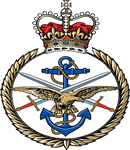Commemorated: | |||
| 1. Memorial: | Basra Memorial | Panels 57&66 Basra | |
| 2. Book: | The (1921) Masonic Roll of Honour 1914-1918 | Pg.133 | |
| 3. Memorial: | The (1940) Scroll - WW1 Roll of Honour | 24C GQS | |
Awards & Titles: | Mentioned in Despatches Long Service & Good Conduct Medal | ||
Family :
Son of George and Jessie Rann, of 2, Huntingdon St., Barnsbury, London; husband of Emmie Rann, of 13, Station Parade, Muswell Hill, Middx.Service Life:
Campaigns:
- North West Frontier 1895-1947, Northern India.
- The First World War 1914-1918, World-wide.
| Unit / Ship / Est.: Supply and Transport Corps |
| Action : Mesopotamia |
At the outbreak of war the British, together with Indian troops, resolved to protect oil supply in the region by occupying the area around Basra at Abadan. This evolved into a series of campaigns towards Baghdad against the Turkish forces as Mesopotamia (modern Iraq) was part of the Ottoman Empire. Meetings in late 1914 and into 1915 led the Viceroy and Indian government at Simla to reconsider the limited involvement of troops and they decided to order further advances with a view to securing the Shatt-al-Hai, a canal connecting the Tigris and Euphrates river and potentially capturing Baghdad. The British government disagreed and wished to conserve forces for the Western front. The Viceroy was given permission to act as it wished, but told in no uncertain terms that no reinforcements should be expected.
The initial success experienced by the British and Indian forces quickly disintegrated in the face of Ottoman opposition. The Siege of Kut-Al-Amara began on 7th December with the besieging of an 8,000 strong British-Indian garrison in the town of Kut, 100 miles south of Baghdad, by the Ottoman Army. These campaigns produced few tactical benefits, indeed the catastrophic defeat at Kut in 1916 was a major setback. Badhdad was eventually taken in March 1917.
The conditions in Mesopotamia were dreadful. The climate, sickness and disease produced large losses in addition to battle casualties. About as many men died of disease as were killed in action. The Mesopotamia front was part of a strategy hoping for success at lower cost than the Western Front but no decisive victory was achieved.
Masonic :
| Type | Lodge Name and No. | Province/District : |
|---|---|---|
| Mother : | St John the Evangelist No. 1483 E.C. | Pakistan |
| Joined : | Northern Star No. 1463 E.C. | Punjab |
Initiated | Passed | Raised |
20th April 1904 | 18th May 1904 | 15th June 1904 |
Initiated into 1483, where his full name is cited. Listed as [S+TCorps ?Supply + Transport Corps?] and stationed at Mioin Meer, Punjab when initiated into St. John the Evangelist Lodge No. 1483 in 1904. He "Resigned 30.6.07", which judging by a mass exodus of members at the same time, would probably mean that his unit was posted elsewhere.
Shortly afterwards, he became a joining member of Northern Star Lodge 4th December, 1907, recorded as a Staff Sergeant S+T.C., stationed at Ferozepore. In the contribution record it shows that he "Died 24 June 1917." This is a year out from official record.
Source :
The project globally acknowledges the following as sources of information for research across the whole database:
- The Commonwealth War Graves Commission
- The (UK) National Archives
- Ancestry.co.uk - Genealogy, Family Trees & Family History online
- ugle.org.uk - The records of the United Grand Lodge of England including the Library and Museum of Freemasonry
Additional Source:
- Founder Researchers : Paul Masters & Mike McCarthy
- Researcher : Bruce Littley

